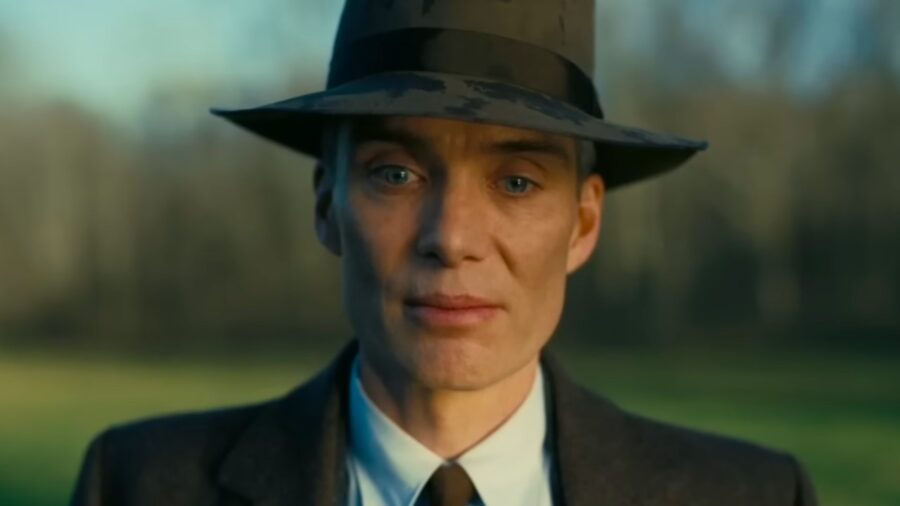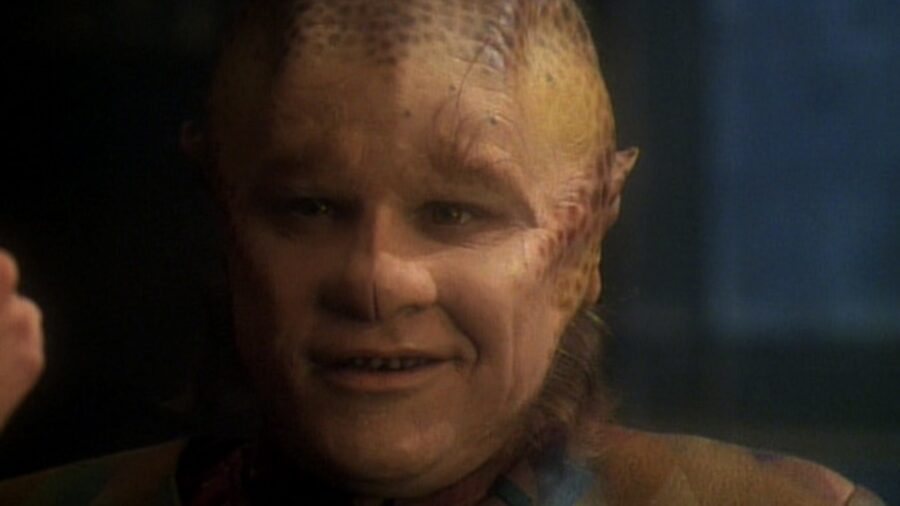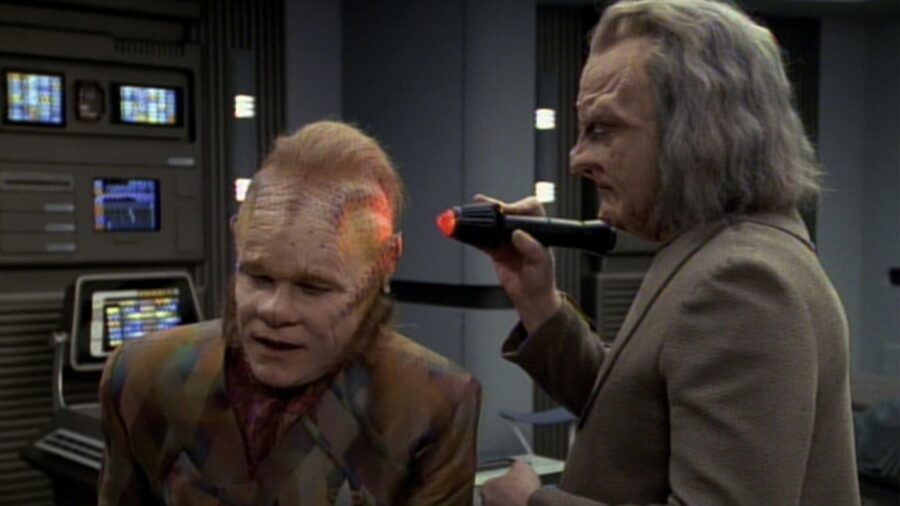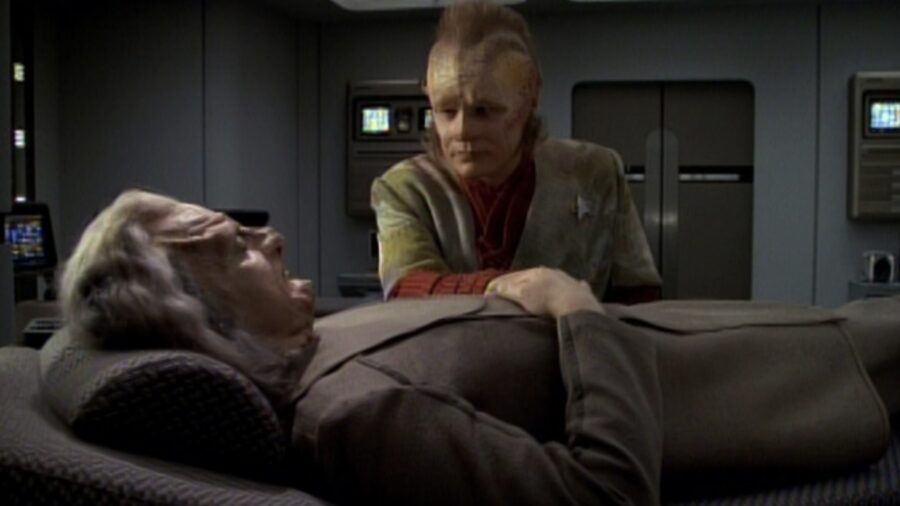
By Chris Snellgrove
| Published

Last year, the film Oppenheimer took the world by storm, sweeping the Oscars and leaving a lasting cultural impact on everyone who saw it. In terms of tone and subject matter, that movie was the polar opposite of Star Trek, a franchise that is all about exploring strange new worlds rather than building bombs. However, decades before Oppenheimer came out, Star Trek: Voyager delivered a surprisingly complex episode (“Jetrel”) built around an alien representation of J. Robert Oppenheimer.
Oppenheimer In Star Trek

Oppenheimer’s influence on this Star Trek episode was relatively well-known among fans at the time because it wasn’t exactly subtle. In this story, Neelix is traumatized by Voyager’s encounter with Jetrel, a scientist who built a weapon named the Metreon Cascade that killed over 300,000 Talaxians, including Neelix’s own family. In traditional franchise fashion, the scientist has a crazy plan to try to undo the damage he has caused, but he is racing against time because he is dying of a fatal blood disease caused by the very superweapon he helped develop.
“Jetrel” was written by three writers, including Kenneth Biller, a man who later said “I did a lot of research about Oppenheimer and became fascinated by what I learned” while writing this episode. According to the writer, “There were some lines Jetrel said that were actual things Oppenheimer said.” As an example, he mentioned Jetrel being asked if he felt guilty about what he did to the Talaxians, just as “Oppenheimer was once asked if he felt guilty about Hiroshima and he said, ‘Yes I feel guilty, but I don’t regret it.’”
Another bit of real-life Oppenheimer dialogue that made it into this Star Trek: Voyager episode concerned Jetrel’s description of how the Metreon Cascade looked: “brighter than a thousand suns.” This was referencing the moment when Oppenheimer famously quoted the Bhagavad Gita, saying “If the radiance of a thousand suns were to burst at once into the sky that would be like the splendor of the Mighty One. I am become Death, the Shatterer of Worlds.”

If that’s not enough, Biller once summed up “Jetrel” by saying that this episode was basically “Neelix meets Robert Oppenheimer.” In this way, the episode was a little more on the nose compared to Trek’s usual metaphorical storytelling, but Biller was just fascinated with creating a sci-fi answer to the question “What if Oppenheimer was confronted by a survivor?” In this case, the survivor is Neelix, and turning the episode into an unexpected character study of the Talaxian is part of what won over showrunner Michael Piller and other producers.
“Basically, we’re using the Oppenheimer character as an inspiration to tell something about one of our guys,” Piller said of this Star Trek episode. The fact that the guy in question was comic relief character Neelix helped win over producer Jeri Taylor, who praised “Jetrel” because it “gave us the opportunity to show a completely other side of Neelix.” Fellow producer Brannon Braga agreed, saying that the episode “removed Neelix from being just comic relief,” a necessary step because “You don’t want him to become the joke of the ship.”
In case you were wondering, Oppenheimer and his legacy come across pretty well in this Star Trek episode. Jetrel ends up failing in his noble attempt to undo the damage that he did and ends up getting forgiven on his deathbed by Neelix. This Oppenheimer stand-in, like so many memorable Star Trek cameo characters, is presented as a tragic figure who decided to do the right thing no matter what, not unlike what we see in the thematically similar DS9 episode “Duet.”

Again, Oppenheimer is normally the last person you’d associate with Star Trek, but “Jetrel” proves that this real character’s fascinating life can be a springboard to learn more about our favorite fictional characters. And if you don’t like the episode, you don’t have to become the destroyer of worlds to make it go away. Instead of firing off a Metreon Cascade, just hit the power button on your remote and, like Jetrel himself, do your best to forget what happened.

Leave a Reply